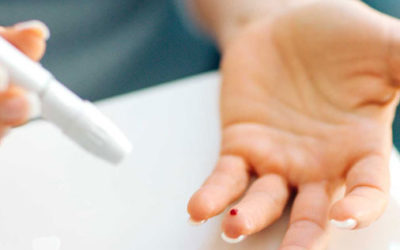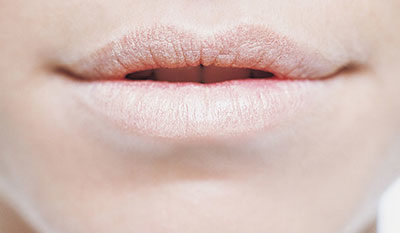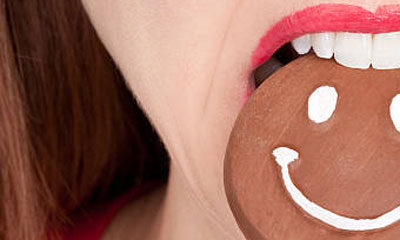When you get up in the morning and are dragging with no energy, you reach for a cup of tea or coffee. While there are health benefits to drinking tea or coffee in the morning, you don’t want to negate them with adding a couple spoons of sugar to your mug.
So what are the best sugar alternatives for tea?
Honey
Honey is a great sweetener for your tea. It’s natural, and flavors it well. However, while honey is natural, it’s not exactly low in sugars or low in calories. In fact it has the same sugars (glucose and fructose) as table sugar. And that is what most are trying to get away from. So what other sugar alternatives are available?
Agave
Agave is often viewed as a healthier alternative to sugar, and it definitely is more “natural” than refined sugar. Agave doesn’t cause a spike in blood sugar and that’s because the dominant sugar is fructose, which has been the subject of much criticism lately in leading to the same problems of insulin resistance as seen with high fructose corn syrup.
Stevia
Stevia is another sweetener that everyone has jumped on board with. The stevia sweetener comes from an herb and is “generally recognized as safe” according to the FDA. Stevia does come with some minor side effects. People have reported bloating and nausea after ingesting stevia and according to Livestrong.com people with diabetes should not consume stevia, as it can lead to hypotension or hypoglycemia. And while stevia is very sweet, it does have a bitter aftertaste similar to licorice.
Xylitol
Xylitol as a sugar alternative for tea or coffee is perfect. Xylitol has a nearly 1:1 sweetness ratio with sugar. That means you can use as much xylitol as you would normally sugar, only with 40% fewer calories and carbs. Xylitol contains no bitter aftertaste and can perfectly sweeten tea or coffee. It also has added dental benefits when consumed in appropriate amounts as it prevents dental caries. Some who use an over-recommended amount of xylitol have reported bloating and diarrhea. However, when used in the recommended amounts of 6 – 10 grams scattered throughout the day, individuals should experience little to no discomfort. The dental benefits of xylitol in reduced tooth decay are best obtained by several exposures over the day–the researchers say ‘strive for five’, which is associated with about an 80% reduction in decay. Gums and mints can help but the most economical way is just to use xylitol to sweeten your beverages and foods.
We obviously recommend xylitol as your sugar alternative for tea or coffee, but the decision of what you put in your body is ultimate yours. If you have any questions about xylitol comment and let us know, or visit our other blogs to learn more.
Related Articles
Indoor air pollution solutions
Breathing Easy Indoors By Jane Wooley. Think pollution is all about filthy air outdoors? You’d be wrong. In recent years, more and more scientific evidence has shown that it’s actually the air inside our homes and buildings that are the most seriously polluted....
Keep your Nose Clean
by Jane Sandwood Every day you breathe up to 30,000 times. Now imagine you’re breathing in polluted air. When we think of toxins in the air, we immediately think of our lung health. But your nose is the first organ that has to deal with polluted, harmful air. Even...
What is Xylitol?
What is xylitol? Well it is pretty amazing, if we do say so ourselves. It is an alternative sweetener that has been popular in food products since the 1960s. On top of being a sweetener, it has shown to have a significant reduction in cavities when used...
Is Xylitol Good for Diabetics?
Let’s first talk about what xylitol is. Xylitol is a sugar alcohol. The suffix “itol” is how you can most often identify a sugar alcohol. Ironically, sugar alcohols are neither sugar nor alcohol. They are basically water-soluble solids found in plants and...
How to Relieve of Dry Mouth with Xylitol
What is Dry Mouth and What Causes It? Dry mouth is caused by the salivary glands in the mouth not performing properly, or, more commonly, by mouth breathing secondary to nasal congestion. Poor salivation can be caused by medications, cancer treatments,...
Prevent Tooth Decay with Sweets
Did you know your sweet tooth could actually make your dentist happy? And we don’t mean because you’ll be paying them to fix your cavities, we mean, you could stop having cavities. It’s true; a sweetener can be the answer to your dental health problems. Xylitol is a...










Xylitol is a naturally present substance found in the fibres of many fruits and vegetables and can be made in small amounts by the body. While it can be sourced from carbohydrate molecules (called polysaccharides) in the cell walls of birch and beech trees, rice, oat, wheat and cotton husks, the main source of xylitol for commercial use is corn cobs. Once extracted and processed, you’re left with a white, crystalline powder that looks like sugar. It has the same sweetness as sugar and has become a popular sweetner in food and health products.